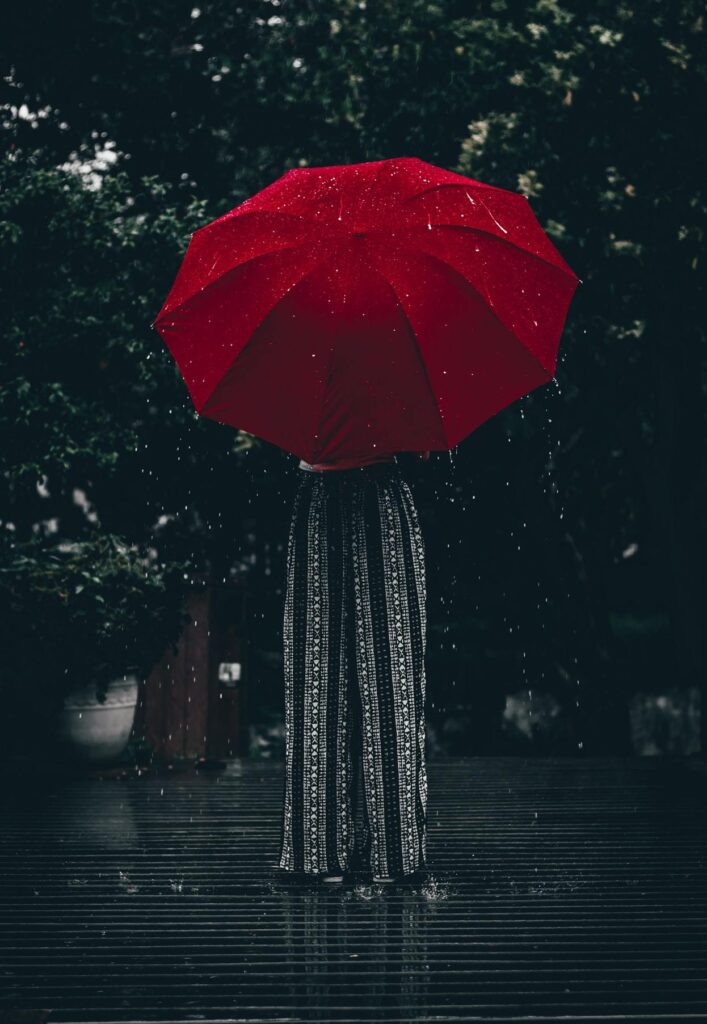
It rained here yesterday. By rain, I mean sheets of water pouring down and heavy winds all accompanied by thunder and lightning. We had power outages rolling through the region, not to mention a tornado watch. The biggest saving grace was that it was merely chilly, not actually cold. It’s easy to think of weather no worse than an inconvenience, but there are few events we are likely to experience that can be as dangerous and deadly. How bad can a simple rainstorm be, you ask? Here are a few ways:
At one point, I looked outside and could see nothing but streaming water against my window. Besides being wet and miserable, imagine how much worse it would be if you were inside a moving vehicle. It might seem cowardly to pull over and wait for a downpour to pass, but if you can’t see the road, think about who can’t see you either. It’s not just a matter of turning on your headlights and slowing down to a snail’s pace when visibility is so poor. Driving at all is a bad idea, both for who or what you can hit and for who or what might hit you.
The roads themselves can be dangerous because of the rain too, not to mention sidewalks and parking lots. That layer of water can not only carry debris into your path, but itself be an obstacle to your ability to travel safely. It doesn’t require being a small person to be swept away by fast-moving floods; even cars can be affected. Even if there’s not that much water or wind, a layer of rain can cause hydroplaning in a vehicle that is moving too fast for the conditions. When that happens, the tires lose contact with the road and you’ve got a large, out-of-control projectile. If you’re the driver, you need to let off the gas immediately and steer in the direction you’re going so that you can get back on the ground and on your way.
Some of the debris that can end up on the road includes trees and large branches, along with smaller objects of all types. They’re annoying enough when you have to detour to get around them, but they can also land on your home, your car, or even you. Putting aside the property damage and the hassles of dealing with it, what do you know about treating blunt-force injuries? Most of what you can do is limited to ensuring that the victim continues to breathe, preventing further trauma, controlling blood loss, and calling for help, but there are many potential skills wrapped up in there. It’s not as sexy as learning how to treat gunshot wounds, but perhaps more likely (and some of the knowledge will transfer either way).
If you aren’t driving and you don’t get hit by anything, you can still get soaked by the rain. In the summer, that’s annoying at worst. As it gets colder and windier, hypothermia becomes a real risk, even in temperatures 20-25 degrees Fahrenheit or more over freezing. It’s important to stay as warm and dry as possible with layers and real rain gear, not to mention hats and mittens, not just an umbrella. Pay attention to symptoms like shivering, losing coordination, and starting to feel “off” like you’re drowsy or confused. Get yourself inside, dry, and warmed up as soon as you can if get caught out in this type of storm.
All that assuming that your home doesn’t just straight up flood, whether from water on the ground or coming from the sky and through your roof. That might not hurt you physically, though it sure can feel like that as you watch your possessions get damaged and wonder where you’re going to live and how you’re going to pay for it while everything gets fixed or replaced. That’s why part of protecting yourself means having insurance, having emergency funds, thinking about how you store important and valuable things, and knowing how to deal with problems like a sump pump deciding not to start. Even if dealing with those problems means looking it up on YouTube or calling a reliable friend.
Plus your home might stay dry, but will the power stay on? Mine blinked out and reminded me that no electricity also means no Internet service. Fortunately, my heat and my stove will still work without, but what about yours? If you get a massive rainstorm and the temperatures drop as they often do after winter rains, will you be able to stay warm? If your roads are blocked because of storm debris, do you have food that doesn’t require cooking? Do you have a way to light your surroundings that isn’t relying on your cell phone which, by the way, you need to charge?
Just some simple rain. The thunder, lightning, and other issues that can come up maybe not very enjoyable, but we can prepare for them. Then afterward, we can all appreciate the pretty rainbows and dramatic sunsets that can follow.




